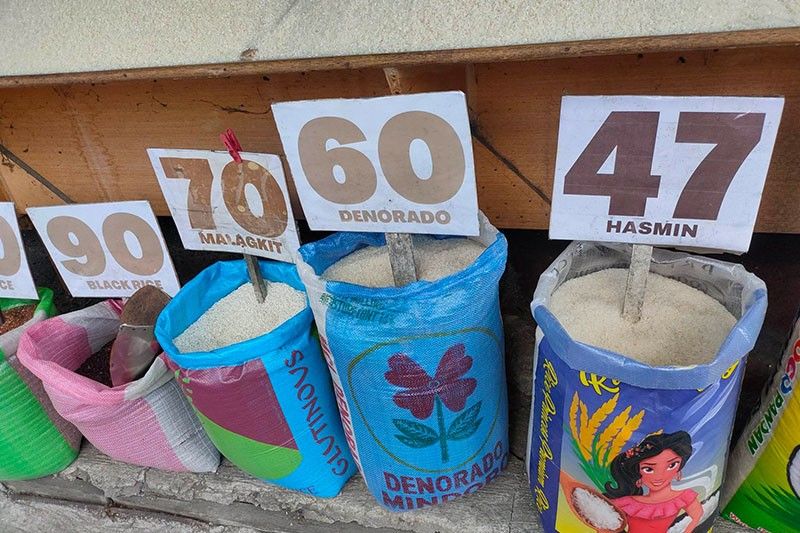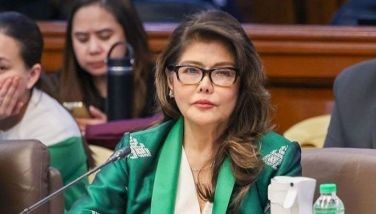‘97.5 percent rice sufficiency in 5 years doable, but…’

MANILA, Philippines — The government should prioritize the competitiveness of local palay farmers amid the flooding of imported grains, according to a farmers’ group, as it pointed out that achieving rice self-sufficiency would be short-lived if it lacks profitability for producers.
In a radio interview yesterday, Federation of Free Farmers (FFF) national manager Raul Montemayor said that while President Marcos’ target of achieving 97.5-percent rice self-sufficiency in five years is “technically” achievable, local farmers would still compete with the unabated influx of imported rice under the rice tariffication law (RTL).
“Under the rice tariffication law, the government cannot prevent the importation of rice. It did not impose a ceiling on the importation. The law only stated that all agencies of the government are barred from preventing the arrival of imported rice,” Montemayor added.
Marcos has approved the Masagana Rice Industry Development Program, which seeks to achieve the highest possible rice self-sufficiency level by implementing various strategies.
The Masagana Rice Industry Development Program is similar to Masagana 99, a program implemented in 1973, during the late former president Ferdinand Marcos Sr.’s administration, that sought to address rice shortage and boost production.
“Technically, (we can achieve rice sufficiency in 2027) as our shortfall for one year is only about 10 to 15 percent, and it is easy to achieve if we can increase the rice plantations and increase the palay yield per hectare,” Montemayor said.
He noted that during the implementation of Masagana 99, many farmers suffered huge debts.
“Normally, if you want to increase the yields, you will invest on fertilizer, inputs, you will borrow. Based on the experience of farmers during the Masagana 99 period, their yield increased, but they were left with huge debts,” Montemayor said.
For the FFF leader, the government should make sure farmers can compete with the retail price of imported grains.
“We can be self-sufficient, but the market is still open to cheap rice imports. Local farmers, with the low cost of imported grains, will be forced to bring down their farm gate price just to compete with imported rice,” he said.
He added that the Philippines has a commitment under the World Trade Organization to allow an open market for rice trading without the intervention of government.
“The government should first fix the cost of production of our farmers, their competitiveness, before targeting self-sufficiency. Otherwise, it will be short-lived, the self-sufficiency will not last as farmers will suffer losses,” he said.
Because of the RTL, the country imports 20 to 25 percent more of the rice needs as against the 10 to 15 percent of actual needs.
“This is the reason why the farm gate price of palay is down during the harvest season,” Montemayor said.
Based on data from the Bureau of Plant Industry as of May 25, at least 1.6 million metric tons of imported rice had arrived, where the bulk or 1.4 million MT came from Vietnam, from January to May this year.
Montemayor expressed belief that the government’s target to bring down the farm gate price of rice to P8.13 per kilo will actually dissuade farmers from planting.
“If you will offer P8 per kilo, it will not entice farmers as the cost of production is actually at P12, P13 (per kilo),” he said.
“The approach of Masagana 99 was good as it had fertilizer, technical advice, credit, lands under the CARP (Comprehensive Agrarian Reform Program). It was discontinued during the administration of (the late former president Corazon) Cory (Aquino) as the implementation of the program was no longer comprehensive,” he added.
Montemayor emphasized that the government should learn from the mistakes from the past.
“A good slogan is not enough if no concrete program is offered. President Marcos should task officials to consult with farmers. Officials may succeed in impressing the President through the slogan, but if there is no detailed evaluation, the past mistakes will just be repeated,” he said.
Masagana 99 was able to address the rice shortage, but was dogged by credit program issues, according to experts.
- Latest
- Trending




























